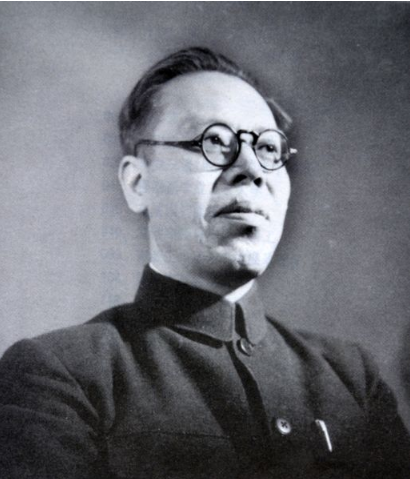History and Culture
Home > About Hunan > Celebrities
Li Lisan

Photo source: Party History Research Center of the CPC Hunan Provincial Committee
Li lishan(Lǐ Lìsān), born in March 1899, was an early leader of the Chinese communists, and the top leader of the Chinese Communist Party from 1928 to 1930, member of the Politburo, and later a member of the Central Committee.
Early years
Li was born in Liling, Hunan province in China in 1899, under the name of Li Rongzhi. His father, a teacher, taught Li Chinese traditional poems and classics. In 1915, he arrived at Changsha for high school and saw an advertisement in a newspaper written by a student from First Normal School of Changsha with the pen name 28 Strokes. Li met, and then became friends with, the young man whose real name was Mao Zedong. Later, Li joined the army of a local warlord in Hunan. One of the Division Commanders, Cheng Qian, who was both Li's father's townsman and alumni, sponsored Li to study in Beijing.
Career
When Li reached Beijing, he applied to study in France and arrived there in 1920. He worked part-time as assistant to a boilermaker to earn his tuition. His boss was a member of Communist Party, and Li was influenced in accepting Communism, taking part actively in the struggles for Chinese labor rights in France.
When Li came back to Shanghai, he was introduced by Chen Duxiu to join the Chinese Communist Party (CCP). The party assigned him to organize the labor activities in Anyuan Coal Mine. Being the most important labor work leader there, Li greatly increased the number of CPC members and perfected methods of organization. By the end of 1924, there were only 900 CCP members throughout China, 300 of whom came from Anyuan Coal Mine. It was at this time that Li showed his great talent in labor work and organization in conjunction with Liu Shaoqi, who later became his deputy.
In the 6th National Congress of CPC held in Moscow, Li's old friend Xiang Zhongfa was elected as General Secretary with the support from the Comintern and the Soviet Union. During the reign of Xiang, Li Lisan played a gradually more important role. Xiang sacked Cai Hesen, the incumbent standing member of Politburo of the CCP and Minister of Propaganda Department of the CCP for Cai's extremist way in directing the Sunzi Division of CCP, which resulted in extreme democracy and discontent at the CCP center. Xiang chose Li to replace Cai. Li became one of only four standing members of the politburo and minister of Propaganda Department of the CCP in October 1928.
Li was elected as member of the Central Committee of CCP in the 7th National Congress of the CCP held in Yan'an. In 1946, Li was sent back to China. Li first came to northeast China to work for the local division of the CCP as Minister of the City Work Department. At the outbreak of Chinese Civil War, Li was appointed as chief representative of the CCP part of the military arbitration panel consisting of members from KMT and the USA.
After the establishment of the People's Republic of China in 1949, Li went back to the field in which he was most expert, being appointed as Minister of Labor to lead the labor union. Li was dedicated to his old cause and brought forth some guidance on democratic management measures in industry, which was later called by Mao as the Constitution of Anshan Steel Mill. At the same time Li Lisan was one of the founders of the CPPCC mechanism. And during the years of Korea War, he was appointed as the secretary general of Anti Air Defence Council ranking as vice-premier, due to his anti-air attack practice during the WWII during his stay at Moscow.
Chinese source: hunan.gov.cn

